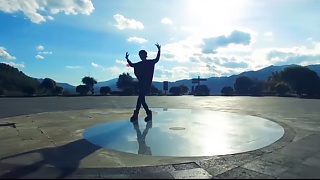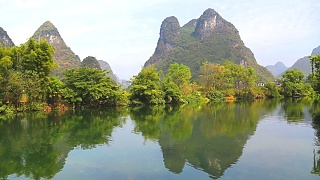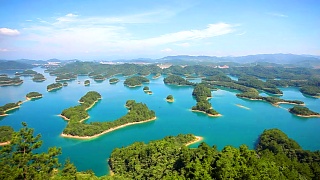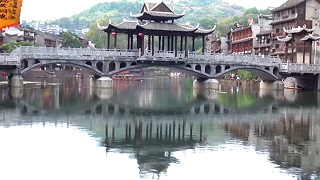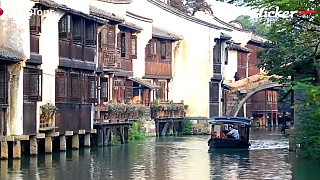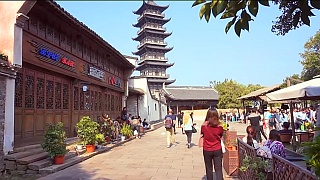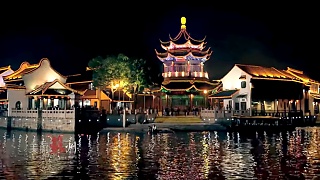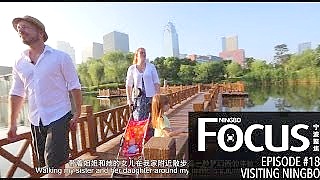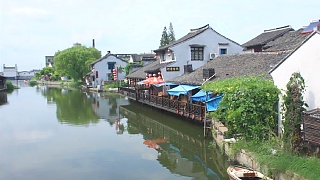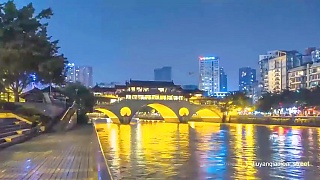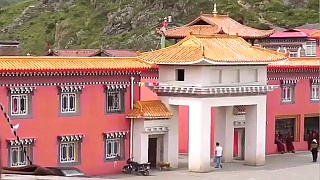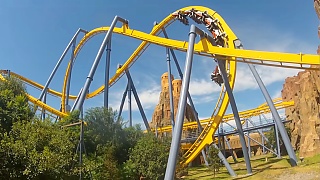WuZhen is an ancient water town.
It can be easily reached by bus or train from SuZhou or HangZhou. It is famous for its blue-dyed fabric.
[640],shadow=true,start=4,stop=
Wuzhen is a charming water town located in the northern part of Zhejiang Province, China. It's renowned for its well-preserved historic architecture, tranquil canals, and traditional way of life. Here's what you need to know as a tourist visiting Wuzhen:
Historical and Cultural Attractions:
Ancient Alleyways and Bridges: Explore Wuzhen's picturesque alleyways, lined with traditional whitewashed buildings, wooden houses, and stone bridges. The town is divided into East and West sections, each with its own distinct character.
Bridges: Wuzhen is famous for its numerous bridges, each with its own unique architectural style and historical significance. The most iconic bridge is the Double Bridges (Shuangqiao), which consists of two stone bridges running parallel to each other.
Traditional Architecture and Cultural Sites:
Old Houses: Explore traditional Huizhou-style houses with whitewashed walls, gray-tiled roofs, and intricately carved wooden door frames. Many of these houses have been converted into museums, galleries, and guesthouses.
Museums: Visit cultural institutions like the Wuzhen Museum and the Folk Customs Museum to learn about the town's history, customs, and folk traditions.
Shadow Puppetry: Wuzhen is known for its traditional shadow puppetry performances, which showcase intricate puppets made of leather and silk.
Canal Cruises and Water Activities:
Canal Cruises: Take a leisurely boat ride along the town's scenic waterways to admire the ancient architecture and tranquil landscapes from a different perspective.
Water Activities: Explore the town's water-based activities, such as fishing, bamboo rafting, and traditional boat races.
Local Cuisine and Snacks:
Wuzhen Snacks: Sample local specialties such as Wuzhen rice wine, glutinous rice cakes, fried dough twists, and sesame seed candy.
Tea Houses and Cafes: Relax in one of the town's traditional tea houses or modern cafes, where you can enjoy a cup of freshly brewed tea or coffee while soaking in the atmosphere.
Practical Tips:
Transportation: Wuzhen is easily accessible by bus or car from nearby cities like Hangzhou and Shanghai. Within the town, walking and cycling are the best ways to explore its narrow alleyways and pedestrian-friendly streets.
Accommodation: Consider staying overnight in one of Wuzhen's traditional guesthouses or boutique hotels for a truly immersive experience.
Weather: Wuzhen experiences a subtropical climate with hot, humid summers and mild, dry winters. The best times to visit are spring (March to May) and autumn (September to November) when the weather is pleasant and the town is less crowded.
Ticketing: Admission tickets are required to enter the East and West Scenic Areas of Wuzhen. You can purchase tickets at the entrance gates or online in advance for added convenience.
Wuzhen offers a peaceful retreat from the hustle and bustle of modern life, allowing visitors to step back in time and experience the charm of traditional Chinese water towns. Whether you're interested in history, culture, or simply seeking a serene getaway, Wuzhen has something to offer every type of tourist.

 WuZhen 乌镇 water town
WuZhen 乌镇 water town